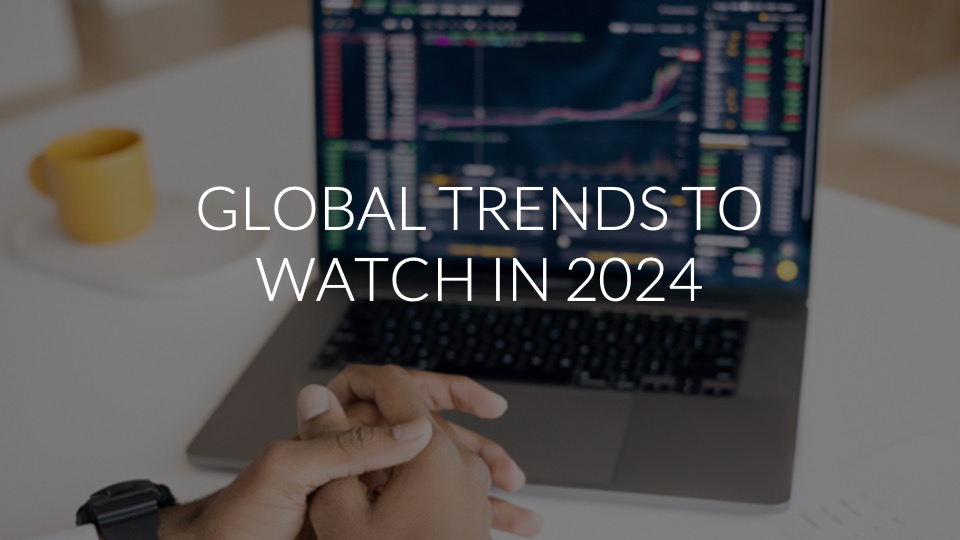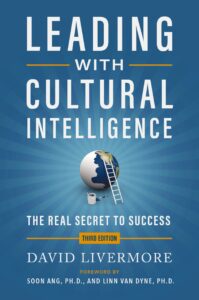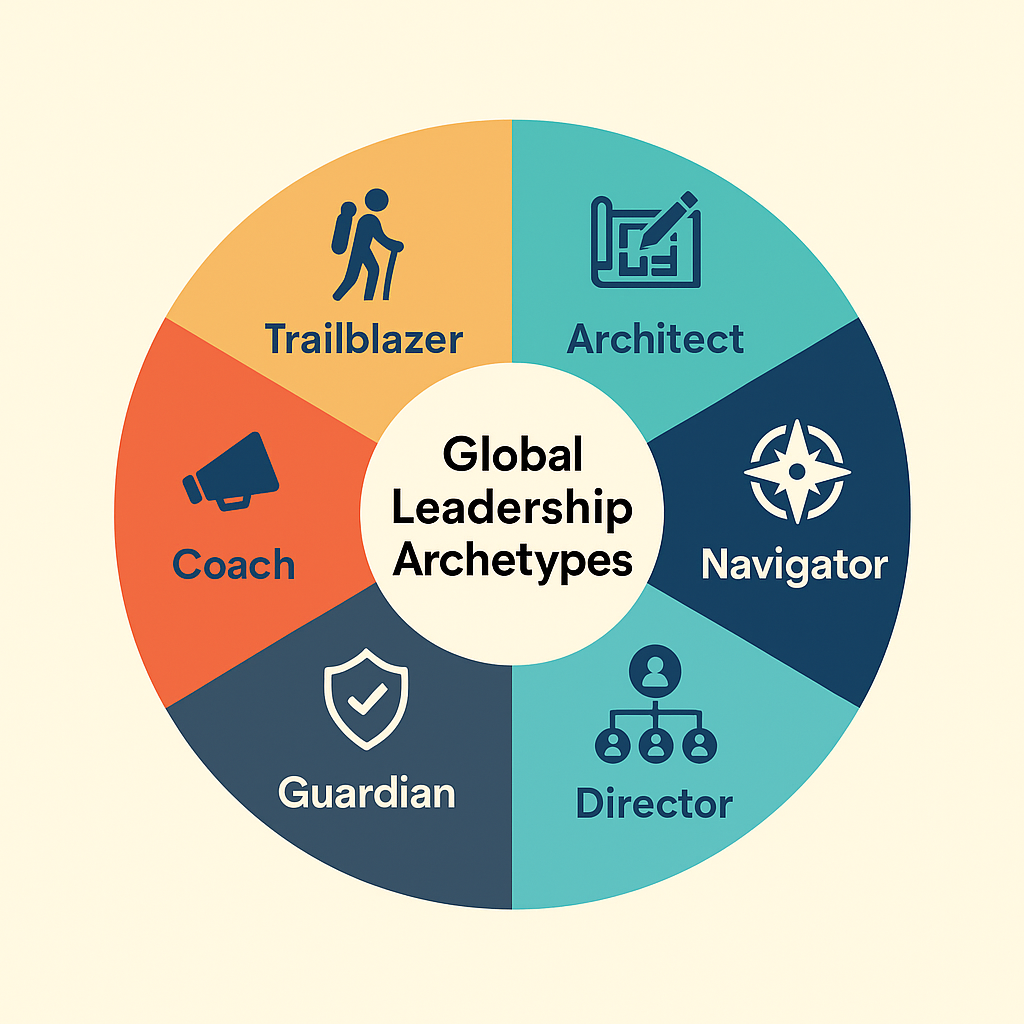
Like many, I spent time over the holidays reflecting on the last year and planning for the year ahead. That included working through my hopes, dreams, and goals for myself, the Society of CQ Fellows, the Cultural Intelligence Center, and the work I’m part of at Boston University. But I also couldn’t help but wonder what the next year will hold for us as a global community.
Here are a few 2024 trends I’m anticipating and watching as we advance the work in cultural intelligence together:
1. DEI isn’t going anywhere.
I share the concerns about the backlash on DEI but the reality is—organizations everywhere are faced with increased levels of diversity. Regardless of the political agendas and opinions about Claudine Gay, trans rights, and white privilege, employers have to figure out how to address the challenges (and opportunities) of having people with many different backgrounds, values, and perspectives working together. Diverse teams and workplaces are here to stay and there will continue to be a need to help people better understand each other and work together.
The increased scrutiny on DEI is frustrating and it’s further evidence of how far we have to go. But it’s also an opportunity for DEI consultants and advocates to innovate and think about how to ensure the work being done promotes lasting change and inclusion of everyone.
2. ESG is in trouble
It’s been 30 years since John Elkington started talking about the triple bottom line—people, planet, and profit. But today, ESG (environmental, social, and governance) has become a tacit expectation of companies everywhere. Consumers, and especially Gen Z, are not neutral about how companies act in the world and take care of the planet. Even traditionally conservative behemoths like Wal-Mart won’t work hire contractors to paint their stores if they aren’t using sustainable products.
But much like DEI, there’s political backlash toward ESG. With highly visible elections potentially happening in places like India, the UK, and the US, I expect heated debates about the realities of climate change, who is most responsible for it, and the competitive agendas between profit and ethics. It sounds nice to say you can be about both, but just look at what reportedly happened at Open AI when the board decided ethics come first. I’m going to be watching how this unfolds in the coming months and I invite others to join me in thinking about the connections between cultural intelligence and ESG.
3. China will put trade above geo-politics
Pundits, would-be presidents, and old guys hanging out at coffee shops have a long list of opinions about China—most of which are dire. I’m amazed how often complete strangers give me their relentlessly negative assessment of China, including the threat of Confucian institutes at universities, the inferior goods manufactured in China, and human rights violations. I often respond by saying, “I find China to be a fascinating, rich culture. Have you ever been there?” Typically they give me a blank stare before doubling down on their critiques.
The criticisms about China are not unique to the US. I often hear them when I travel in Singapore, India, and Europe too. Here’s my take. China has no interest in going to war. They, like most countries in the world, want to grow their economy and improve the quality of life for people. There are things I’ve seen and heard in China that give me pause. I’m not here to defend them. But from where I sit, China wants to collaborate with anyone who will help them get ahead.
4. Ukraine will be “forgotten”…and maybe Israel
We have short attention spans when it comes to wars. I don’t say this lightly but we’ve already seen it. Many people (and governments!) have moved on from waving the Ukrainian flag to choosing a side between Israel and Palestine. We seem to have a hard time paying attention to more than one conflict at a time and this isn’t only civilians. Many senior officers that I have worked with in the special operations community tell me that the US military has a weak track record of successfully participating in multiple global conflicts at the same time.
Those of us who are committed to cultural intelligence can’t lose sight of the many global conflicts going on around the world. This includes Ukraine, Russia, Gaza, and Israel but it also includes ongoing conflicts in Syria, Myanmar, Ethiopia, Somalia, Congo, Haiti, and the list keeps going. We can’t get equally involved in every conflict but cultural intelligence requires that we keep these in our purview. These conflicts need to shape how we think about working with teams that include Palestinians and Israelis, Ukrainians and Russians, Christians and Muslims…
5. AI will become more of an everyday tool
2023 was the year many of us were slightly mesmerized (and scared!) by ChatGPT. This year, I expect generative AI to move from being something that fascinates us to becoming a tool that we all learn to better leverage in our everyday lives and work. Just as Google was initially an interesting phenomenon (What? You can look up anything and it gives you information within seconds) it’s now become a tool we rely on for most everything.
No, this article was not written by AI but I’m learning how to use AI as a partner in my work—asking it to synthesize the main ideas of a long research article or brainstorming “with” me on the details of the global initiatives we’re developing at Boston University. Some of the companies I work with are using generative AI to mine their own databases as an efficient way to pull up and use their own information more intelligently. On a global scale, there are innovators in places like Senegal and India who are leveraging AI to treat high risk pregnancies and stop malaria. The prospects are inspiring and literally life changing. These emerging technologies require regulation and discernment but they also offer us an enormous resource for working smarter and building a better world.
6. Globalization will make a come-back
Finally, I expect the heated debates about globalism and nationalism to continue, particularly with so many significant national elections coming. India now limits the size of tax-deductible donations that can be made to institutions outside the country, populist parties like the National Rally in France and the AfD in Germany have gained popularity through anti-immigration rhetoric, and the US and China continue to impose hundreds of billions of dollars of tariffs on each other, disrupting global trade flows everywhere.
However, in the real world, people and organizations want access to the world. International travel is at an all-time high, people want goods that are made in other places, and global nomads want the option to work from anywhere. The 2024 workforce in particular, will be more interconnected than ever, transcending geographical boundaries. While the structure of global trade may change, globalization is here to stay.
Wait! There’s one more!

This year the 3rd edition of Leading with Cultural Intelligence comes out! What started as a relatively minor update expanded into revising almost every page to better reflect the challenges and opportunities of leading today versus a decade ago when I wrote the 2nd edition. This is my best-selling book and I’m excited to get the third edition out into the world (coming Sept 2024).
Building a more culturally intelligent world requires keeping an eye on what’s going on globally. While we can’t take on every cause and concern with equal passion, we have to keep a pulse on these kinds of global trends to inform the ways we promote trust, innovate, and build a more culturally intelligent world one interaction and team at a time.



